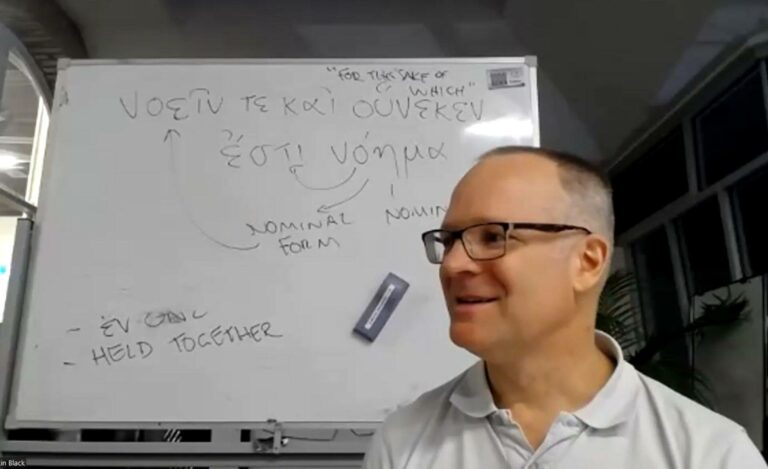Martin Black and Bernie Lewin had long shared their love of ancient Greek wisdom through teaching evening courses. Their students usually read from English translations of the ancient Greek. But in 2021 they mused about teaching the ancient language along with the philosophy. Could they ever expect to fill a class of absolute beginners keen to learn the original language starting with α, β, γ?
“We never expected our “dead language” course to attract more than a small cadre of our most committed students,” Bernie Lewin from the Platonic Academy of Melbourne told Neos Kosmos.
But in 2021 the Academy went ahead and advertised a course taught by Martin Black in collaboration with his philosophy school, also based in Melbourne, the Independent School of Philosophy.
“That first course booked out so quickly that another class on another night was necessary.” And, as Bernie explained, this also booked out.
“Since then some students have been studying with Martin continuously, and right through summer,” said Bernie. Every time a new beginner’s course is advertised it also books out.

Why has ancient Greek language been so popular? “When people of Greek heritage sign up, it is completely understandable” said Martin, “they wish to gain a more direct appreciation of a legacy unique in world history.”
But Martin believes the attraction is universal not only because “Greek poetry is unsurpassed in its beauty and human sympathy.” According to Martin, the ancient Greeks were also the first to discuss “the possibility of a rational understanding of the world and of politics.”
Indeed, said Martin, “it was the Greeks who discovered or invented philosophy and the sciences and democracy.”
According to Martin, the problems with translations are apparent to all who can read classical Greek. “When you are completely dependent upon a translators’ interpretation of the language,” explained Martin, “the original text is frequently integrated into completely foreign modern conceptual frameworks that the classics would question or reject.”
Bernie believes the success of the beginner’s course might also be in how Martin brings the philosophy into the language lesson. Plato is the first philosopher whose writings have survived as complete texts. We possess only fragments of the authors prior to Plato who discovered the very possibility of what we now call “philosophy” and “science.” These fragments have fascinated philosophers ever since, both for their concision and ambiguity. It is these fragments that Martin uses.
“Sometimes we only have a sentence or a phase to work with,” said Bernie.
“Even after learning only a few words,” said Bernie, “the students can gain profound insight into the philosophy of such giants of our tradition as Heraclitus and Parmenides.”
Martin and Bernie still aren’t sure why the language courses are so popular. But they are pleased to be sharing the wisdom of Ancient Greece beyond the walls of modern academia and with as much depth of study as their students’ desire.
The Independent School of Philosophy and the Platonic Academy of Melbourne are offering a new beginners Ancient Greek language courses starting 14 February. This and other philosophy courses can be booked through the websites of both schools.









